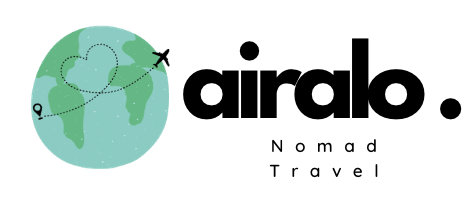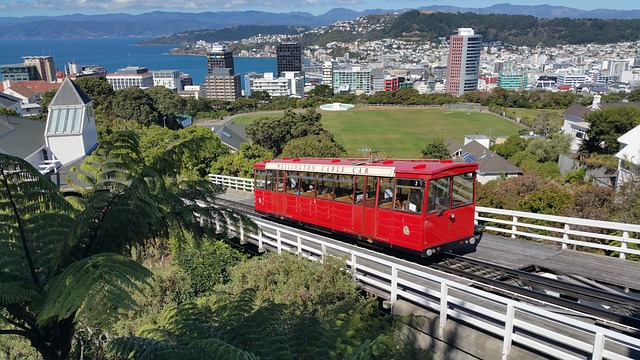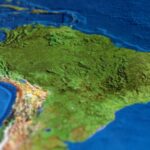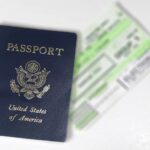
New Zealand is one of the ideal destinations for many digital nomads around the world. With its beautiful natural landscape, pleasant climate and friendly community atmosphere, it has attracted more and more people to choose to work and live here. In order to attract more remote workers and entrepreneurs, the New Zealand government launched the New Zealand Digital Nomad Visa. This article will provide detailed information about New Zealand’s digital nomad visa, including visa application conditions, procedures, visa advantages, and attractions for digital nomads.
1. New Zealand Digital Nomad Visa Overview
With its magnificent natural landscape, pleasant climate and friendly living environment, New Zealand has become an ideal destination for an increasing number of digital nomads. In order to attract remote workers and self-employed people, New Zealand supports digital nomads to live and work locally through a series of visa policies. Currently, although New Zealand does not have a separate “digital nomad visa”, remote workers and self-employed people are still able to legally stay and work in New Zealand through different types of visas. Here are the details of the New Zealand Digital Nomad Visa.
1.1 Applicable people
New Zealand’s digital nomad visa is for people who are able to work remotely or be self-employed. Including but not limited to the following categories:
- remote worker: Employees who provide remote services to companies or customers around the world.
- freelancer: Such as designers, writers, programmers, etc., independent workers who can undertake various projects through the Internet.
- self-employed: An individual who operates a small business independently, such as an online store owner or digital marketing specialist.
- Entrepreneur: International talents who plan to open a company or start a self-employment project in New Zealand.
These groups are in compliance with New Zealand’s existing visa policies and can legally enter New Zealand through working holiday visas, temporary work visas or other applicable visa categories.
1.2 Existing visa types
While New Zealand currently does not have a dedicated “digital nomad visa”, digital nomads can pursue their plans through existing visa categories. Here are some of the most commonly used visa types:
1.2.1 Working Holiday Visa
- Applicable objects: Usually applicable to young people between 18 and 30 years old (under 35 years old in some countries).
- Validity period: The maximum stay is 12 months.
- working conditions: Applicants are allowed to work legally in New Zealand, but the working time is limited, usually no more than 6 months. Suitable for those who want to travel and work for a short period of time.
- Suitable for digital nomads: Mainly suitable for young people who want to experience life in New Zealand while working remotely, especially freelancers who have no specific employer relationship.
1.2.2 Temporary Work Visa
- Applicable objects: For those who have found job opportunities in New Zealand, particularly those involving short-term projects or where skills are in demand.
- Validity period: Depends on the length of the work contract, usually about 1 year.
- working conditions: People holding this visa must work for a New Zealand employer or be involved in designated projects. If the applicant’s work can be completed remotely and there is no direct employment relationship with a local employer in New Zealand, you can also apply through this visa.
- Suitable for digital nomads: Suitable for professionals who are engaged in long-term remote work and want to stay in New Zealand, especially in industries such as technology and design that can work remotely.
1.2.3 Self-Employed Visa / Entrepreneur Visa
- Applicable objects: This visa is suitable for applicants who wish to start their own business or carry out self-employment in New Zealand.
- Validity period: Usually 1 to 2 years, depending on the size of the business and business plan.
- working conditions: The holder needs to work for himself or participate in the company he founded. This visa is especially suitable for entrepreneurs and small business owners.
- Suitable for digital nomads: Suitable for those looking to grow their business or projects to New Zealand, especially digital nomads who want to build a long-term career in New Zealand.
1.3 The digital nomad visa of the future
Although New Zealand currently does not have a dedicated visa category for digital nomads, the New Zealand government is aware of the rise in the global trend of remote working. To this end, the New Zealand government stated that it may launch a more specialized digital nomad visa in the future. Such a visa will provide remote workers with a more streamlined visa process and more flexible stay and work conditions, especially for those who want to live long-term and work remotely in New Zealand.
1.4 Visa advantages and flexibility
New Zealand’s digital nomad visa offers global remote workers greater flexibility through existing visa policies. Whether you are a young travel enthusiast or a professional interested in long-term self-employment or entrepreneurship, you can find the visa type that suits you in New Zealand. New Zealand’s working environment and living conditions make it an ideal choice for digital nomads around the world.
2. Application conditions
New Zealand’s digital nomad visa application conditions are relatively flexible and designed to attract professionals and self-employed people who can work remotely. Applicants need to meet a series of conditions to demonstrate their ability to work remotely during their stay in New Zealand without providing services to a New Zealand employer. The following is a detailed description of the application requirements:
2.1 Proof of work
The nature of an applicant’s work is a key factor in assessing eligibility. New Zealand’s visa policy requires applicants to be able to prove that they are engaged in remote work and that the work content is not directly related to a local employer in New Zealand. Specifically, applicants need to meet one of the following conditions:
- Work for a non-New Zealand employer: Applicants must prove that they are providing remote services to companies or individuals located in other countries. Whether full-time, part-time or freelance, the applicant’s employment relationship must be outside New Zealand.
- Self-employed or freelancer: If the applicant is a freelancer or entrepreneur, they need to prove that they provide services for their own business, and that these businesses or projects are not directly related to the New Zealand local market. Typically, applicants will need to provide relevant business evidence such as contracts, invoices or other documents showing self-employment status.
- Work contracts and project certificates: Applicants may need to provide a detailed contract or work agreement to prove the nature of their remote work and their relationship with New Zealand employers to ensure that their work will not affect the local labor market in New Zealand.
2.2 Income requirements
In order to ensure that applicants are able to make ends meet while in New Zealand and avoid being dependent on New Zealand’s public resources, income requirements are an important application condition. Applicants need to provide proof that they have sufficient financial ability during their stay in New Zealand. Typically, requirements include:
- minimum income standard: Applicants must demonstrate that they can achieve a certain level of income while in New Zealand, usually at least NZ$3,000 to NZ$4,000 per month. This income standard takes into account the cost of living and ensures that applicants can live independently during their stay, covering basic expenses such as accommodation, food, and transportation.
- Proof of income source: Applicants need to provide documents that can prove the source of income, such as bank deposit records, work contracts, customer payment records, tax returns, etc. For freelancers or entrepreneurs, relevant business income and tax documentation will also be required.
- Not dependent on New Zealand’s local economy: It is necessary to ensure that the applicant’s income does not come from local customers or employers in New Zealand, so the applicant’s income certificate should show that the applicant has less direct connection with the New Zealand economy.
2.3 Health and character requirements
All New Zealand visa applicants must meet certain health and character requirements, including:
- health check: Applicants must pass a health examination to prove that they do not carry infectious diseases or other health problems that may pose a threat to public health. Health examinations usually need to be conducted by medical institutions designated by the New Zealand government, and applicants are required to submit relevant health certificates.
- No criminal record certificate: Applicants must also provide a criminal record showing that they have not committed a felony within the past few years. A certificate of no criminal record usually needs to be obtained from the relevant department or police station in the applicant’s country.
- health insurance: Although not compulsory, it is recommended that applicants purchase health insurance during their stay in New Zealand to ensure access to medical services when necessary. Medical costs in New Zealand are high, and having a suitable health insurance can effectively protect your personal health and financial security.
2.4 Duration of stay
New Zealand’s work visas generally allow the holder to stay in New Zealand for up to 12 months, but the length of stay may vary depending on the visa type and the applicant’s circumstances. The specific situation is as follows:
- working holiday visa: Usually suitable for young people (18 to 30 years old, under 35 years old in some countries), with a maximum period of 12 months, suitable for digital nomads who want to balance work and travel.
- temporary work visa: For those applicants who come to New Zealand through a work agreement or project contract, the validity period of the visa is usually linked to the duration of the project, with the maximum duration being 1 year or more.
- Self-employment or entrepreneurial visa: For applicants who plan to start a business or work as a freelancer in New Zealand, the visa is usually valid for 1 to 2 years, depending on the business plan and operations. If you are a start-up or small business owner, you can apply for an extension.
3. Application procedure
Although the procedure for applying for a digital nomad visa in New Zealand is relatively clear, since it involves multiple steps and materials that must be submitted, applicants need to prepare relevant documents in advance and ensure that the information is accurate. The following is a detailed application process to help digital nomads understand the specific requirements of each link.
3.1 Online application
The first step in applying for a New Zealand visa is to submit an online application through the official website of Immigration New Zealand. The specific steps are as follows:
- Create an immigration account: Applicants need to register an account on the official website of Immigration New Zealand (INZ). After the account is created, applicants can fill out the visa application form online and track the application progress.
- Choose the right visa type: Applicants need to choose a suitable visa type based on the nature of their work, such as working holiday visa, temporary work visa or self-employment visa. Each visa type requires different materials and conditions, so be sure to read carefully and choose the visa that best suits your personal circumstances.
- Submit personal information and proof of employment: When filling out the application form, applicants need to provide basic personal information, such as name, date of birth, nationality, passport information, etc. At the same time, you also need to upload relevant work certification documents, including employment contracts, freelance contracts, project agreements, etc., to prove that you are a remote worker and provide services to non-New Zealand employers.
- Proof of income: Applicants need to upload proof of income documents to show their financial ability during their stay in New Zealand. Common income proof materials include bank deposit records, tax receipts, salary slips, contract payment records, etc. to ensure that you can meet the minimum income requirements.
- File upload and payment fees: After completing the information filling, the applicant needs to upload all supporting documents. There is usually a visa application fee payable when submitting your application, which varies depending on the visa type and country of application.
3.2 Submit proof of health and character
To comply with New Zealand’s health and character requirements, applicants will need to provide the following documents:
- health check report: Applicants are required to undergo a comprehensive health examination, and the report must be provided by a medical institution designated by the New Zealand Immigration Service. Physical examinations usually include routine physical examinations, blood tests, and chest X-rays to ensure that applicants do not have infectious diseases or other health problems that may pose a threat to public health.
- No criminal record certificate: Applicants also need to provide a criminal record certificate to prove that they have not committed a felony in the past few years. This certificate needs to be issued by the relevant department (such as the police or court) in the country where the applicant is located. Some countries require proof of a clean criminal record from the place of long-term residence.
- health insurance: Although it is not mandatory, it is recommended that applicants purchase health insurance that suits them, especially if they are a digital nomad staying for a long time. Having health insurance ensures that you won’t incur exorbitant costs in the event of a medical emergency.
3.3 Waiting for review
Once an application has been submitted, Immigration New Zealand will begin the review process. Review times may vary depending on the materials submitted by the applicant and their personal circumstances. Generally speaking, the review process includes:
- Material verification: Immigration Bureau staff will verify the personal information, employment certificate, income certificate, health and character certificate and other documents provided by the applicant to ensure that all information is accurate. If missing materials are found, the Immigration Bureau will notify the applicant to supplement them.
- background check: The Immigration Bureau may conduct a background check, especially to confirm the authenticity of the criminal record certificate. In some cases, the USCIS may require applicants to provide additional documents or conduct an interview.
- Processing time: Visa approval processing times usually range from a few weeks to a few months, depending on the complexity of the application, the applicant’s nationality and Immigration New Zealand’s processing capabilities. While waiting, applicants can log into their USCIS account to check the status of their application and receive any requests for supplemental materials.
3.4 Obtaining a visa
After review and complete materials, the applicant will receive a visa approval notice. At this time, applicants can make arrangements based on the approved visa type. The specific steps are as follows:
- Visa Approval Notification: Once the visa application is approved, Immigration New Zealand will notify the applicant of the visa approval status via email or online system. The approval notice will contain the validity period of the visa, relevant conditions and other important information.
- Print visa information: For some visa types, applicants need to print the visa approval letter and carry it with them for inspection upon entry. Most visas will be provided in the form of electronic visas, and applicants do not need to print additional paper visas.
- Arrange itinerary: After obtaining the visa, the applicant can arrange the trip to New Zealand according to the validity period and conditions of the visa. It should be noted that after entering New Zealand, digital nomads holding a work visa still need to abide by local laws and regulations and ensure that they stay legally during the validity period of the visa.
3.5 Precautions
- Prepare materials in advance: Applicants should ensure that all documents are complete and accurate, especially proof of income, work contracts and health examination reports. Any omissions may result in delays or denials.
- visa extension: If digital nomads plan to stay in New Zealand beyond the validity period of their visa, they can apply for an extension before the visa expires. Extension applications must be submitted before the visa expires and must meet income and employment requirements at the time.
4. Visa advantages
The New Zealand Digital Nomad Visa offers many unique advantages to remote workers, especially those who desire to work in a place with stunning natural scenery and a relaxed pace of life. Here are some of the main advantages of this visa:
4.1 Flexible work and lifestyle
One of the biggest advantages of the New Zealand Digital Nomad Visa is its high degree of flexibility. This means the holder can:
- Free choice of work mode: Whether working remotely full-time, freelancing, or self-employed, digital nomads have the freedom to choose how they work and avoid the restrictions of being hired by a local employer. You don’t need to worry about meeting the New Zealand job requirements.
- Work-life balance: Visa holders can enjoy more personal time while working and living in New Zealand. For example, you can freely adjust your time according to your work schedule without being restricted by strict working hours. Coupled with New Zealand’s relaxed pace of life, digital nomads can enjoy a leisurely life in natural landscapes, and a more natural balance between work and leisure can be achieved.
- Freedom to choose your work location: New Zealand offers a variety of work environments, whether you choose a quiet country cabin, a beachside holiday home, or a modern city office space, it’s easy to find the right place.
4.2 Unique living environment
New Zealand is not only a paradise for remote workers, but its unique natural landscape and high-quality lifestyle are also one of the key factors attracting digital nomads:
- Charming natural landscape: New Zealand is known for its breathtaking natural beauty, including majestic mountains, vast forests, pristine beaches and lakes. For digital nomads who enjoy the outdoors, New Zealand offers countless opportunities for climbing, skiing, hiking, surfing and more. These activities can not only relax the body and mind, but also stimulate creative inspiration and improve work efficiency.
- An environment suitable for combining work and leisure: Many places in New Zealand have stunning natural attractions. Digital nomads can choose to live in these places and enjoy nature while maintaining a productive working state. Whether it is the modern urban atmosphere of Auckland or the natural wilderness of the South Island, they can provide a perfect living environment.
4.3 High-quality healthcare and education systems
New Zealand’s healthcare and education systems are globally recognized, allowing digital nomad visa holders to enjoy several important benefits:
- Excellent medical services: New Zealand has an efficient public healthcare system, and all residents have access to government-funded basic healthcare services. At the same time, the quality of private medical services is also very high. Digital nomads can choose to purchase private medical insurance according to their needs to ensure adequate protection for health issues.
- Advantages of the education system: New Zealand’s education system enjoys an international reputation, particularly in the areas of higher education and technical education. If a digital nomad has a family and plans to live there long-term, New Zealand’s school system will provide a high-quality education for the children. In addition, New Zealand’s adult education and online learning are also very developed. It is very convenient for digital nomads to further their studies and improve their skills.
4.4 No language barrier
New Zealand’s official language is English, which is a huge advantage for digital nomads around the world. Whether it is daily life or work communication, the popularity of English makes it easier for digital nomads to integrate into society:
- Easily integrate into society: As an English-speaking country, residents of New Zealand are generally fluent in English, which means digital nomads have little need to worry about language barriers when communicating, shopping, or asking for help with locals. The spread of English also makes remote collaboration with other international businesses and teams smoother.
- Reduce the difficulty of cultural adaptation: New Zealand is a multicultural society, and digital nomads do not need to worry about the pressure of cultural adaptation caused by language issues. The openness and inclusiveness of locals also makes it easy for remote workers from different backgrounds to integrate into the local community.
4.5 Efficient Internet and remote working support
New Zealand’s Internet infrastructure is very complete, especially in large cities and popular tourist areas. For digital nomads who need an efficient and stable network, New Zealand offers excellent working conditions:
- Fast internet connection: High-speed internet is widely available in New Zealand’s urban and rural areas, allowing digital nomads to successfully conduct video conferencing, upload work files and complete other remote work tasks. Most cafes, coworking spaces, and hotels also offer free Wi-Fi, making it easier for remote workers to work from anywhere.
- Rich remote work resources: Shared office spaces, conference rooms and other facilities are widely distributed in New Zealand, and business districts in many cities have office areas for remote workers. These workspaces provide an independent work environment, fast network connections and comfortable working conditions for digital nomads who need to focus.
5. Cost of living as a digital nomad
The cost of living in New Zealand varies depending on the city and region where it is located, especially the gap between large cities and small cities. The cost of living in large cities such as Auckland, Wellington and Christchurch is relatively high, making them suitable for digital nomads looking for a convenient and modern living environment. Smaller cities or rural areas offer quieter and more affordable living options, helping digital nomads maintain a high quality of life while reducing expenses. Digital nomads can choose the most suitable place to live based on their budget and living needs.
5.1 Accommodation costs
Accommodation is one of the major expenses in the cost of living in New Zealand. The cost of accommodation varies greatly depending on the city, especially the rental gap between big cities and rural areas:
- Auckland: As New Zealand’s largest and busiest city, accommodation in Auckland is more expensive. In the city center, monthly rent for a one-bedroom apartment ranges from approximately NZ$1,800 to NZ$2,500. If you choose an area a little further from the city center, rent may be slightly cheaper, but overall it is still higher than other cities in New Zealand.
- wellington and christchurch: Rents in these two cities are relatively lower than Auckland, but still at a relatively high level. In the central areas of Wellington and Christchurch, monthly rent for a one-bedroom apartment is approximately NZ$1,500-2,200. In the suburbs of these cities or away from the central area, rent can usually be 10%-20% cheaper.
- Small cities and rural areas: If you choose to live in a small city or rural area, the rent is usually 20%-30% cheaper. For example, in smaller cities such as Taupo or Queenstown, a one-bedroom apartment may cost between NZ$1,300-1,800 per month. In addition, rents in rural areas can even be as low as less than NZ$1,000, but the available accommodation and supporting facilities are relatively limited.
5.2 Food expenditure
Food costs are also a significant expense in New Zealand, especially for digital nomads who focus on their personal diet. Food expenses vary widely based on individual eating habits and lifestyle:
- Daily food expenses: Generally speaking, monthly food expenses are approximately NZ$600 to NZ$800. This expense includes buying basic ingredients (such as vegetables, fruits, meats, grains, dairy products, etc.) and occasionally eating out. Vegetarians or people with specific dietary needs may incur slightly higher expenses.
- Dining out: If you often choose to eat at restaurants, the cost will rise significantly. Generally speaking, dining in an ordinary restaurant costs about NZD 20 to 30 per person; while dining in a high-end restaurant may cost more than NZD 50 per person.
- Supermarket Shopping and Market Purchasing: For those digital nomads who choose to cook their own meals, supermarket shopping is the most economical way. New Zealand’s large supermarkets such as Countdown and New World offer a wide variety of ingredients at relatively moderate prices, especially in suburban supermarkets and markets, where prices are often cheaper.
5.3 Transportation costs
New Zealand’s public transportation system covers major cities, but for long-term digital nomads, buying a car is often more convenient, especially in areas with less convenient transportation. Here is a guide to transportation costs in New Zealand:
- public transport: Large cities such as Auckland, Wellington and Christchurch have relatively complete bus, subway and tram systems. In Auckland, a one-way public transport fare is about NZ$2 to NZ$4, and a monthly pass costs between NZ$100 and 150. Public transport in Wellington and Christchurch is relatively cheap, with one-way fares typically ranging from NZ$1.50 to NZ$3.
- Car buying and gas costs: If you choose to buy a car, transportation convenience will be greatly improved. New Zealand’s car rental market is also very mature. If you need a car for a long time, buying a second-hand car is a more economical choice. Oil prices range from approximately NZ$2.20 to NZ$2.50 per liter, depending on the city. Long-term digital nomads who need to travel frequently may spend NZ$150-250 per month on gas.
- Cycling and walking: Most cities in New Zealand are livable and walkable cities, especially big cities such as Auckland and Wellington, which have very complete bicycle lanes and pedestrian neighborhoods. For digital nomads who like fitness, cycling and walking can not only save on transportation costs, but also exercise.
5.4 General cost of living summary
Overall, the cost of living in New Zealand is relatively high, especially in big cities and some tourist cities. However, by choosing to live in quieter rural areas or small cities, digital nomads can significantly reduce their living expenses while enjoying a more peaceful and leisurely living environment. For digital nomads with a tight budget, you can make reasonable plans based on the above living cost reference to ensure that you maintain a reasonable level of expenditure while enjoying New Zealand’s wonderful environment.
in conclusion
New Zealand offers a variety of visa pathways to meet the needs of digital nomads, although a dedicated “digital nomad visa” has not yet been launched. Digital nomads can still legally live and work in New Zealand through working holiday visas, temporary work visas and self-employed visas. New Zealand’s natural environment, great working atmosphere and high quality of living conditions make it an ideal destination for remote workers from around the world.
As the trend of remote work increases, the New Zealand government has realized the economic and cultural potential of digital nomads and may launch more specialized visa categories in the future to provide more convenient working and living conditions for digital nomads. Existing visa policies therefore provide quite flexible options for digital nomads who wish to stay in New Zealand and work remotely, a trend that bodes well for New Zealand’s continued commitment to attracting global talent.





